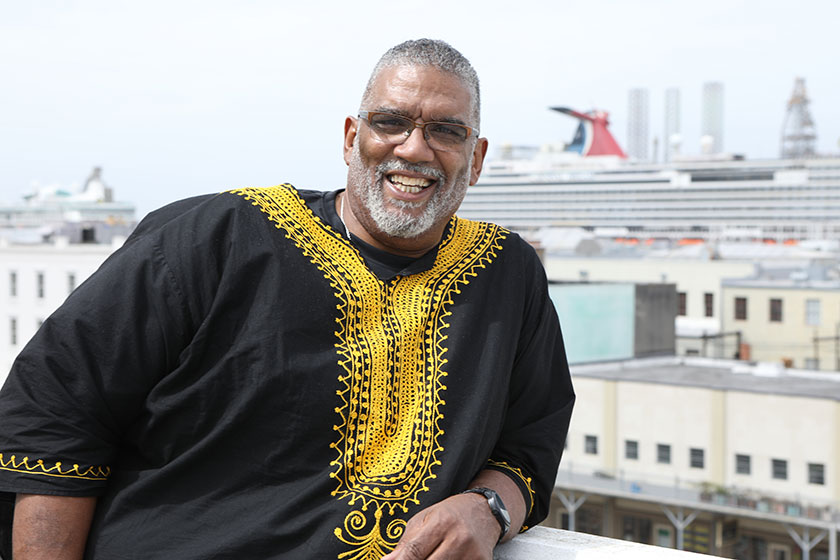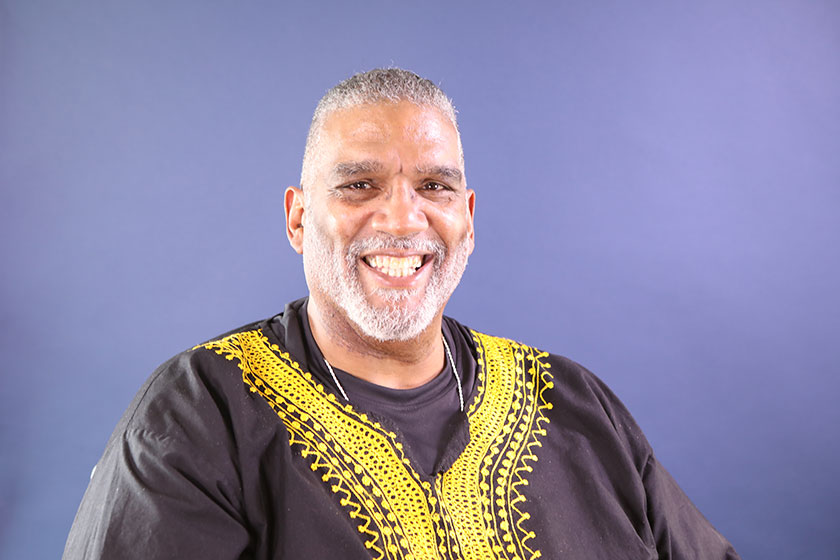"I was 6 feet tall at 12 years old," says Kevin Bruno. "I had a grown man's body and a child's mind, and that led me to be persecuted in school, beyond belief. By the time that I got to high school … I wanted to be somebody who didn't get persecuted." So he started spending time with a tougher crowd, mimicking their behaviors and hoping never to feel vulnerable again.
Kevin pulled off his first robbery at a savings and loan association in Texas. He lay in the back of the getaway vehicle, enthralled by the bag of $42,000 beside him. While his partners weren't looking, he shoved some of the cash in his shoes. Later they divvyed up what was left in the bag.
In the moment, stealing felt good. "I was hooked," says Kevin.
That robbery led to his arrest and a 25-year sentence. He served eight years and four months, returned to the streets, and landed back in prison. This time, Kevin faced 60 years. He wouldn't be eligible for parole until he'd served 15.
Kevin says, "That's when my life changed—in prison."
For years, Kevin had only known turmoil. Then he got to see the worst of prison life. Violence and hateful speech abounded. Officers often contributed to the chaos rather than curbing it. "It was violent. It was racist," Kevin says. Once, he stepped in another prisoner's pool of blood in the hallway.
"That was probably the worst day that I had in prison," he admits.
Change came when Kevin received the opportunity Prison Fellowship Academy® at the Carol S. Vance Unit. Although he was not a Christian at the time, he decided he was willing to engage with a curriculum based on Christian teaching, if it would help him prepare for life on the outside.

'I had, over the years, conditioned myself to be willing to do things nobody else would want to do.'
INTO THE CHAOS
Kevin wasn't thrilled to be in the program at first, and he struggled with the reasons behind his resentment. He finally begged God to show him some purpose.
"God, what is this?" he prayed. "What is this you're trying to tell me?"
Although he didn't share their Christian faith, Kevin developed a sense of belonging in the Academy. Staff, volunteers, and fellow participants made him feel welcome and worthy. He knew the classroom was a safe place to bring questions and doubts. Surrounded by love and support, he discovered his own dignity—the one thing, he says, that prison can strip from anyone.
And along the way, he decided he wanted to open up to Jesus for himself.
"When God revealed Himself to me, it was in a way that I could not deny that it was Him," says Kevin. "I could not deny that He had changed the course of my life."
More than a state-issued ID number. More than a lengthy rap sheet. Kevin's life wasn't over yet.

'The Academy deals with men and women in prison on a one-on-one basis, in a way that allows them to feel whole.'
UNDENIABLE HOPE
"The Prison Fellowship Academy, through the teachings of Jesus Christ, shows each person that encounters it that you're still worthy," he says. "Doesn't matter what you've done. Doesn't matter who [others] say you are. You're still worthy because Christ died so that you would be worthy."
Kevin began to understand his rocky relationship with his earthly father. He realized how the relationship had shaded his view of his Heavenly Father. In a class called "Embracing the Father," Kevin saw that he'd never forgiven his dad for past hurts. Volunteers guided him to understand what healthy forgiveness—and the inner peace that follows—can look like. Kevin realized he needed to be forgiven, too.
Soon, Kevin was sitting across from his parents in the prison visitation room, and he'd made up his mind. They talked about forgiveness and extended grace to one another. It was a moment of profound healing.
That became one of his fondest memories in prison. Best of all, Kevin says, was the day he found Christ: "It may be cliché, but it's the truth."
Kevin is still making memories in prison today, as a free man. He serves as a Prison Fellowship® reentry specialist for the same Academy site where his life changed forever. He works with colleagues like Darryl Brooks, a former prisoner who graduated from the program at the Vance Unit and later rose to become its director.
The men Kevin mentors remind him of his past self, in many ways. He guides them to take ownership of their transformation and embrace core values like community, integrity, and productivity. And he shows them the way to deepen their sense of self—or, as he puts it, "a deeper sense of their ability to get out there and succeed."
"It gives them a sense of, 'If he can do this, I can do this,'" Kevin adds.
It’s a responsibility he doesn’t take lightly. He wouldn’t have it any other way.
'When God revealed Himself to me, it was in a way that I could not deny that it was Him.'